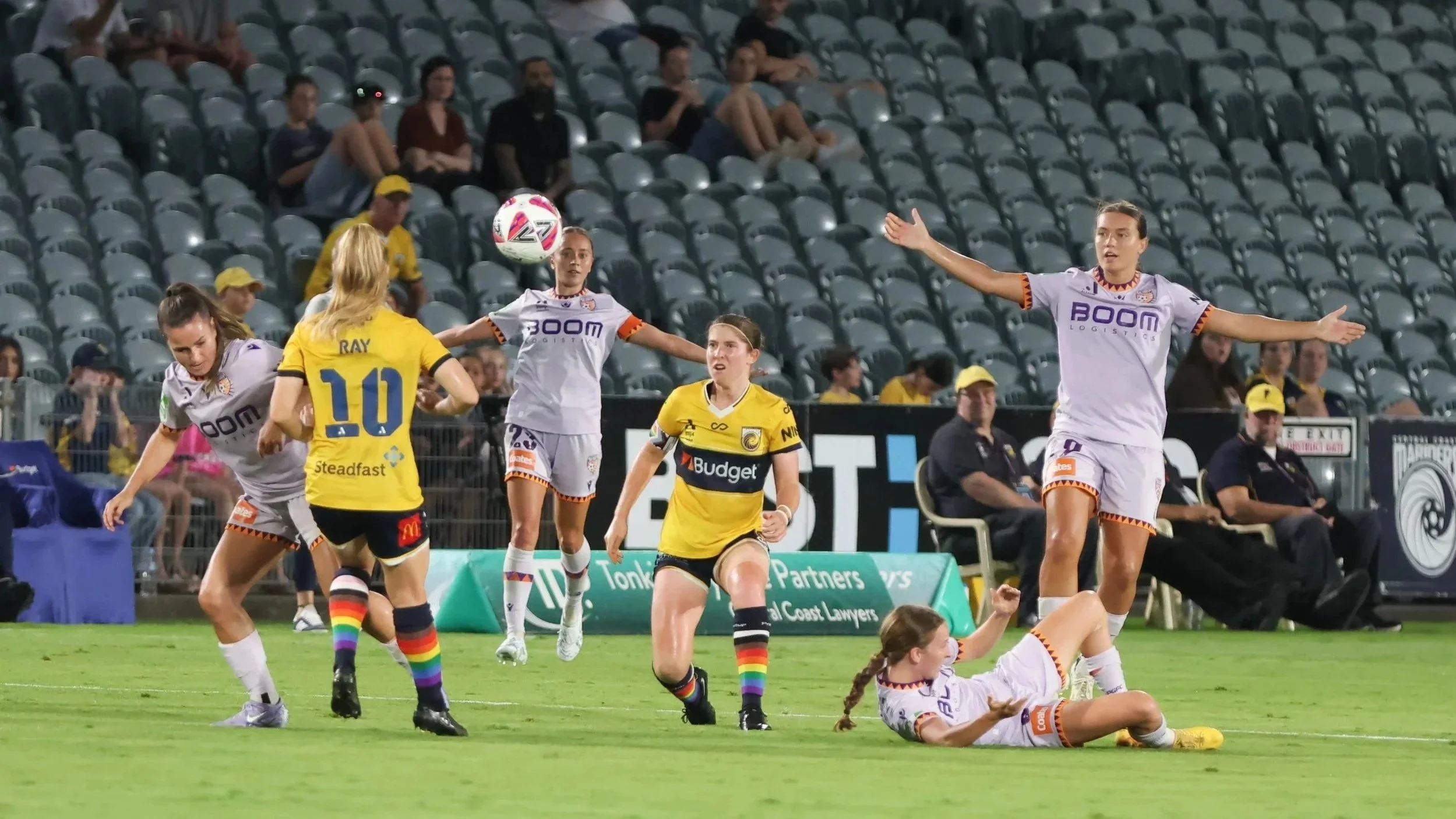'An Afterthought': PFA Report confirms what ALW fans have been feeling
Credit: Texi Smith
A new, alarming report from Professional Footballers Australia (PFA) has put hard numbers to a feeling many supporters have shared: the A-League Women (ALW) is in trouble.
Released this week, the 2024-25 PFA A-League Women Report paints a stark picture. It suggests that stakeholders must stop asking if the league is "growing fast enough" and instead ask, "is it growing at all?"
For supporters, the report is a crucial, and worrying, read. It details a league facing stagnation, a talent drain, and systemic issues that are failing both players and fans.
The stagnation is real
The buzz of the Women's World Cup has worn off, and the PFA's data shows the league failed to capture that momentum.
Crowds are down: Average attendance fell by 26% in the 2024-25 season, dropping to just 1,559.
A global talent drain: The ALW is falling behind leagues abroad. Alarmingly, the report found the ALW is now the least preferred league globally among its own players.
Losing players to new markets: The league is being poached by new, better-resourced competitions. The new USL Super League (USLS) alone signed 13 ALW players last season, making it the top destination for outgoing talent.
A "development league" by default: The league is failing to provide sustainable careers. Match minutes for players 21 and under rose to 32%, not necessarily as a strategic choice, but because peak-age and experienced players are being forced overseas or out of the sport entirely.
For fans, this creates a revolving door of players, making it difficult to build club connections and long-term loyalty.
The crushing cost of a part-time league
The PFA report makes it clear that the league's part-time status is the root cause of its problems.
This model is having a crushing, unsustainable impact on the players.
Financial Insecurity: Despite record player payments, 76% of players reported their financial situation was 'not at all' or only 'slightly' secure—an increase from 66% two years ago.
The Second Job: 62% of ALW players were forced to work outside of football during the season, leading to burnout.
Mental Health Crisis: A mental health audit found that 67% of ALW players experienced sport-related psychological distress, with increases in general anxiety and depression.
Unsafe Workplaces: Inexcusably, one in six ALW players (16%) felt their club environment posed a safety risk, nearly double the rate of A-League Men players (9%). This stems directly from lower investment in infrastructure and staffing.
Fans see the problem, and the solution
This is where the report directly impacts us as supporters. Fan sentiment and market research confirm that professionalisation is the only path to growth.
Fan focus groups revealed that the part-time, under-resourced nature of the ALW signals to potential fans that women are seen as an "afterthought", a stark contrast to the elite standards afforded to the Matildas.
The PFA report highlights two key findings from the fan perspective:
Fans Demand Professionalism: A PFA survey found 62% of Australian football fans agree that ALW players "should be full-time professional athletes." Only 8% disagreed.
Fans Want Connection: Fans named "creating access to players" (in-person and digitally) as the most important factor for driving their support.
The league's administrators are caught in a contradiction. They want fans to engage, but as the report shows, the part-time model makes this impossible. Only 38% of ALW players made at least three commercial appearances (compared to 57% of ALM players), not due to a lack of willingness, but a lack of time.
How can we expect players who are financially stressed, working multiple jobs, and struggling with their mental health to also carry the full load of fan engagement?
This isn't a cost, It's an investment
The report powerfully argues that investing in a full-time, professional league is not a cost—it's a sound business decision.
The global women’s transfer market is projected to exceed $200m by 2027. If the ALW professionalises, it could capture a 5% share, bringing over $10m annually to ALW clubs.
Furthermore, Melbourne City’s run in the inaugural AFC Women’s Champions League (AWCL) earned them $1.2 million, proving our clubs can compete and earn on the Asian stage. This is a massive revenue opportunity being left on the table.
Our view: The status quo is failing fans
The PFA report is a red alert. The current part-time model is failing players and, as a direct result, it is failing supporters.
Fans want a high-quality, professional league they can be proud of. They want to build connections with players who are respected and supported by their clubs. The 'afterthought' era must end.
The FSAA stands with the players in their call for professionalism. It is the only way to build a sustainable, competitive, and engaging A-League Women that fans, and the game, deserve. The administrators must see this not as a burden, but as the only viable path forward.
You can read the report in full here


